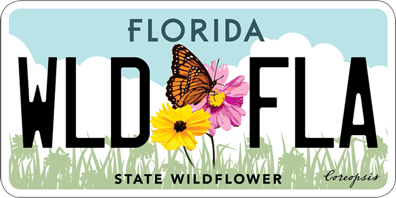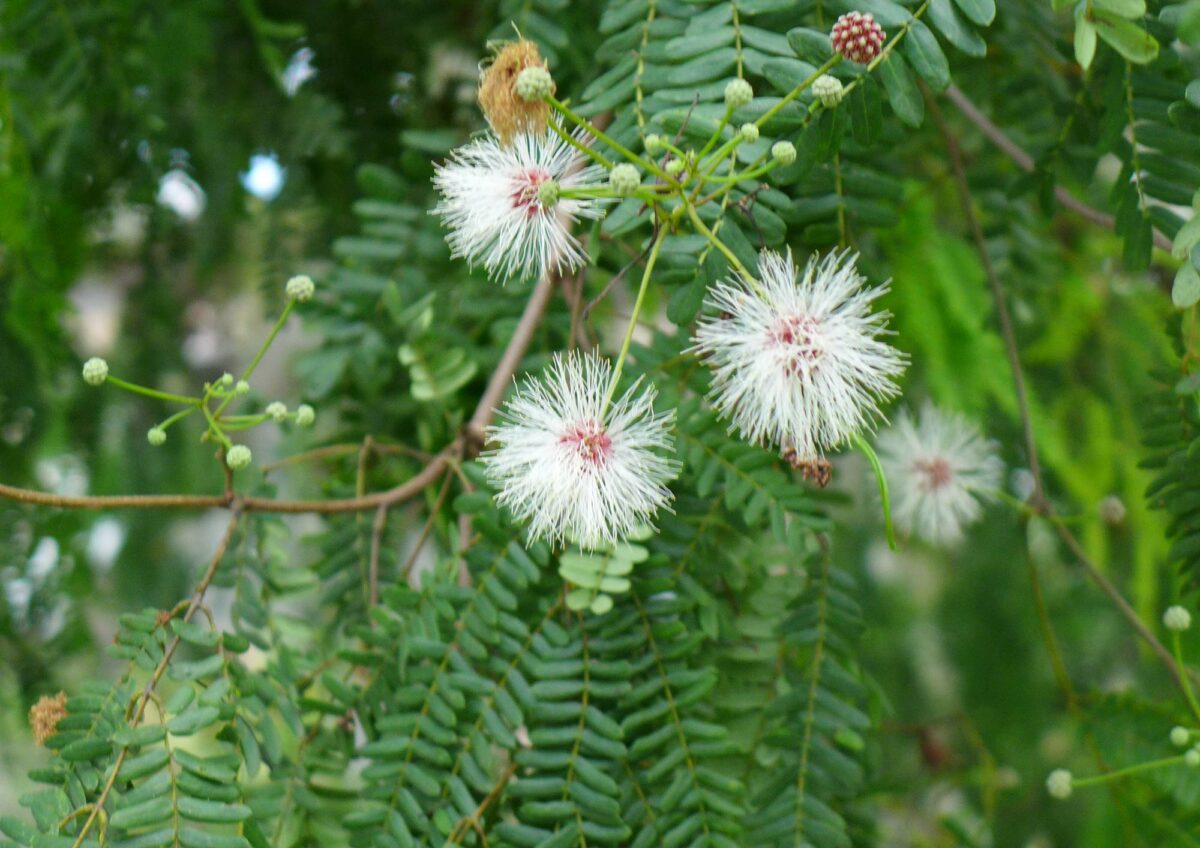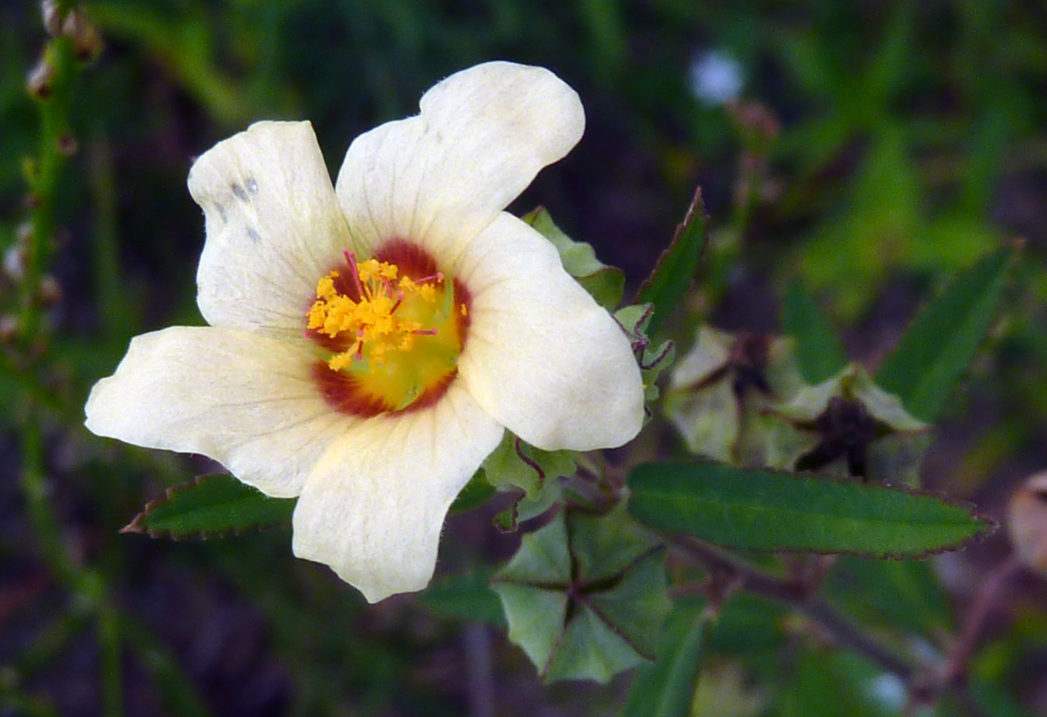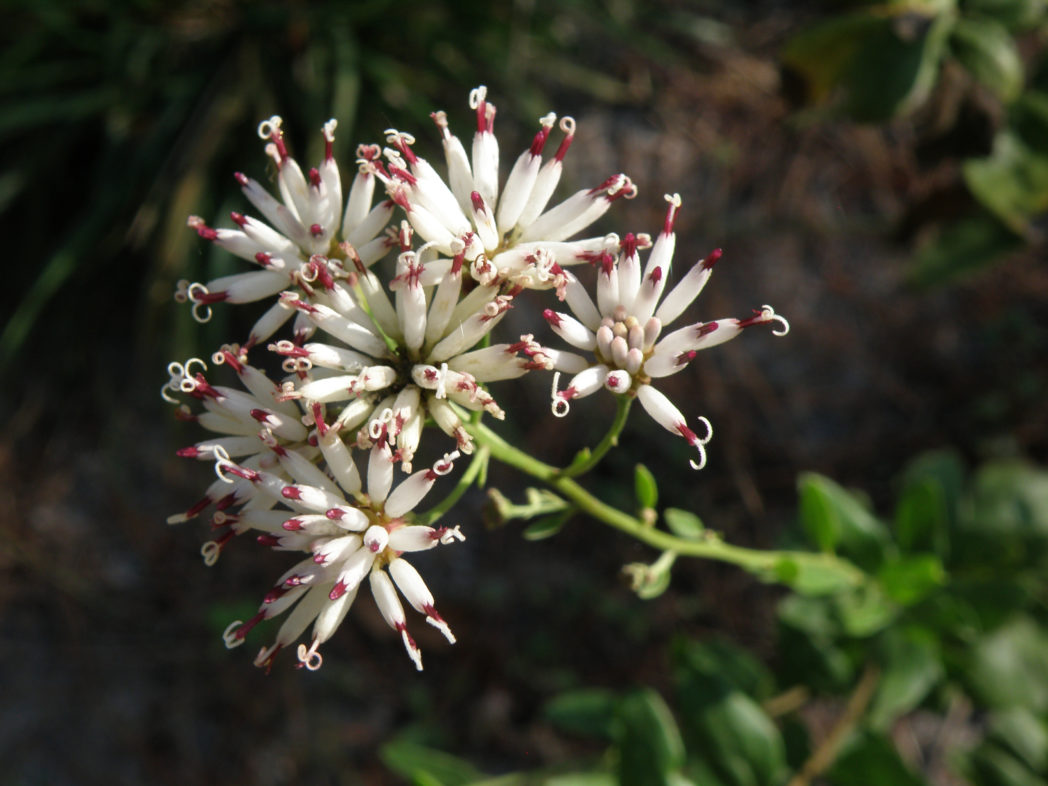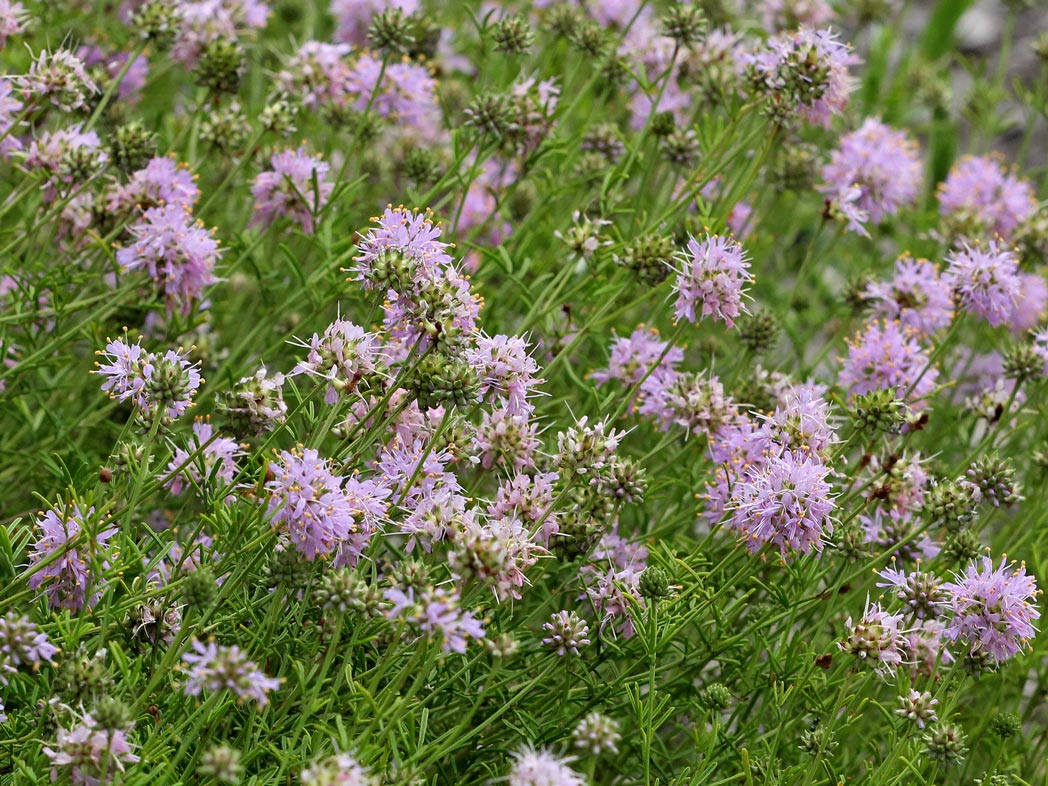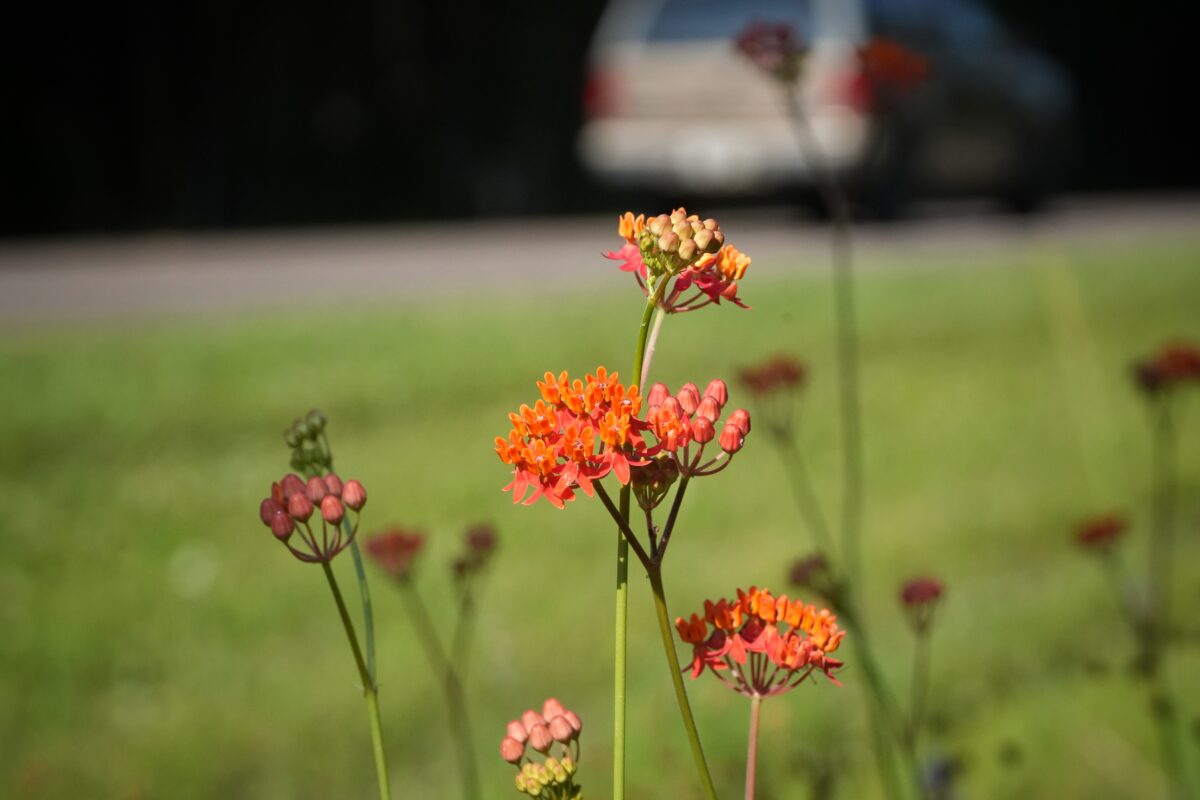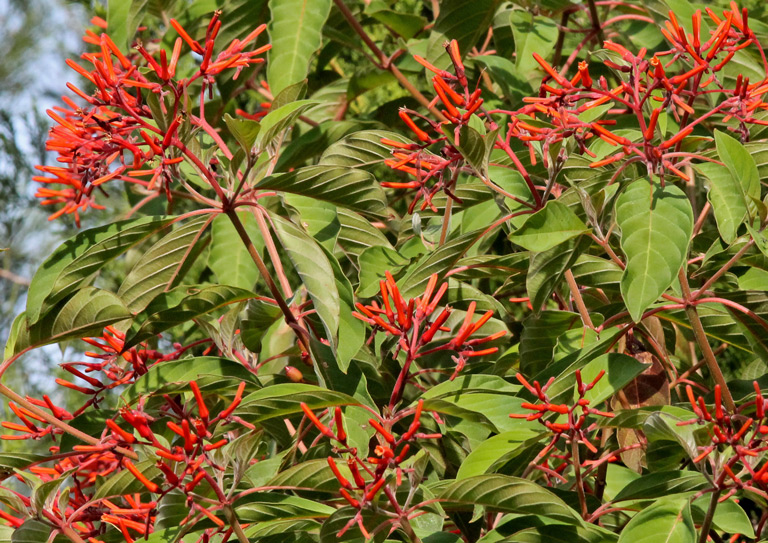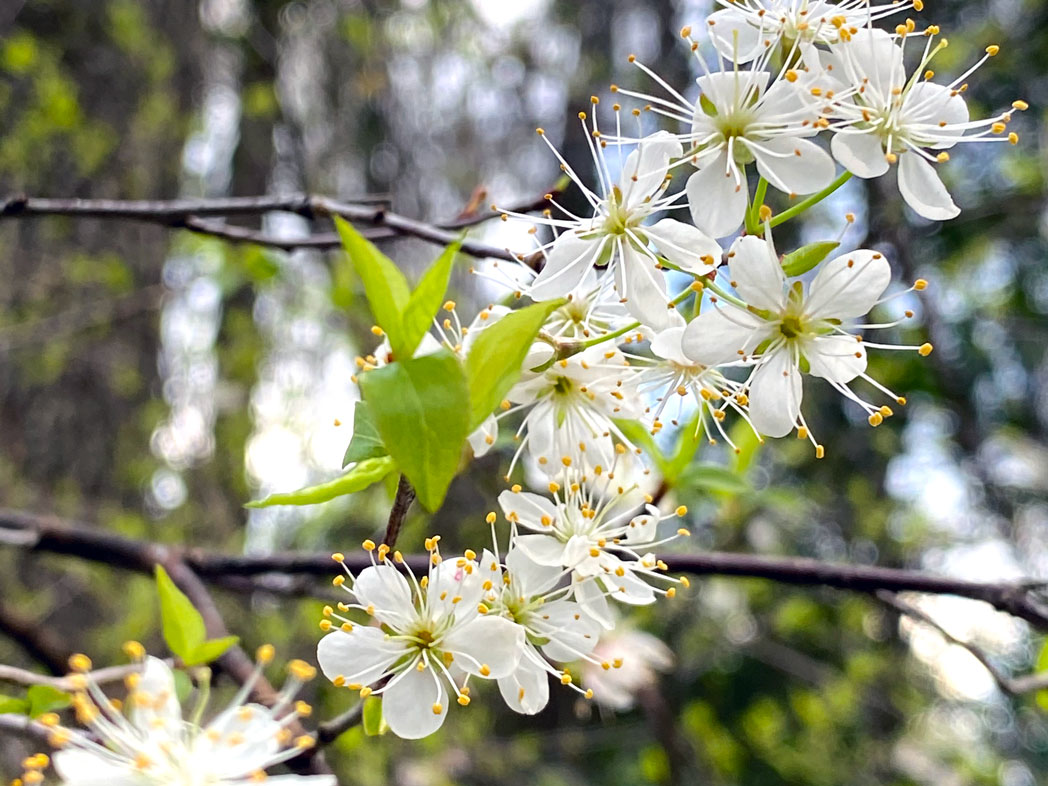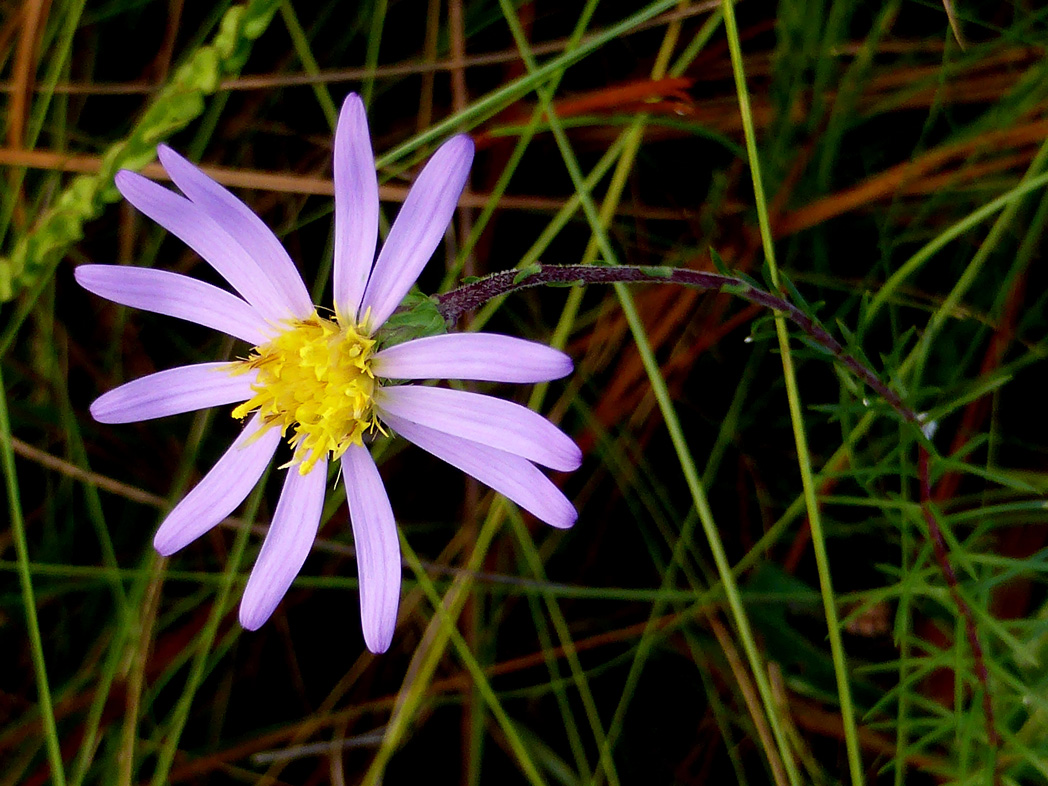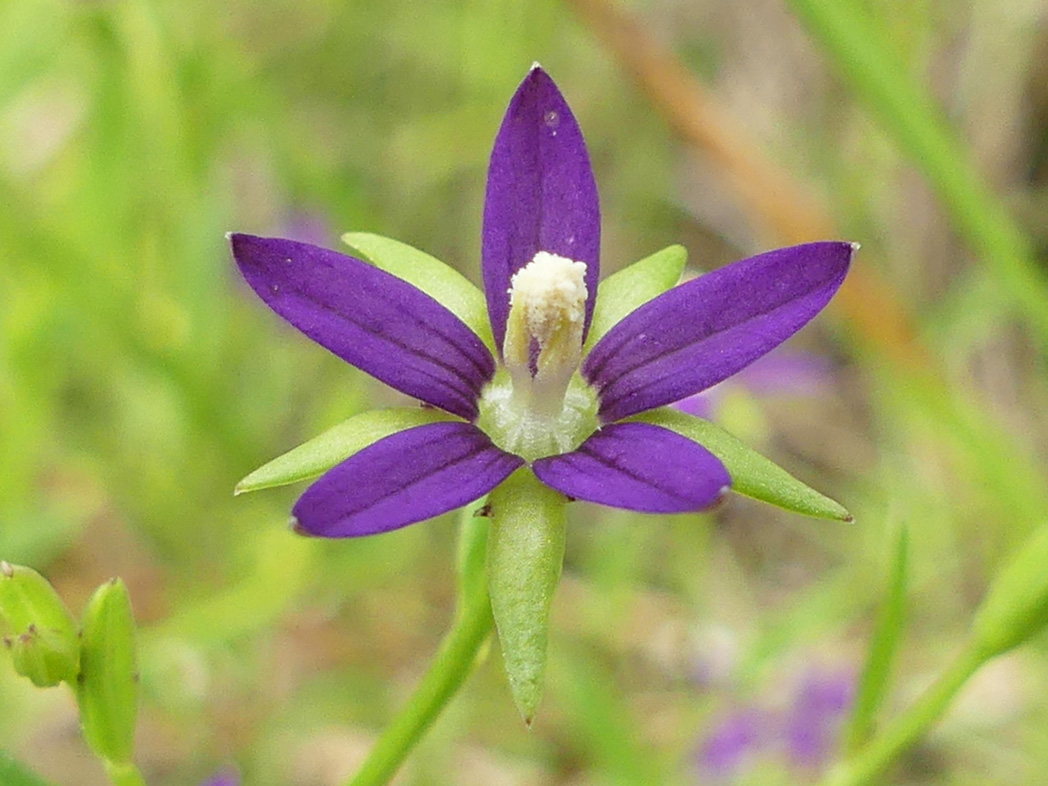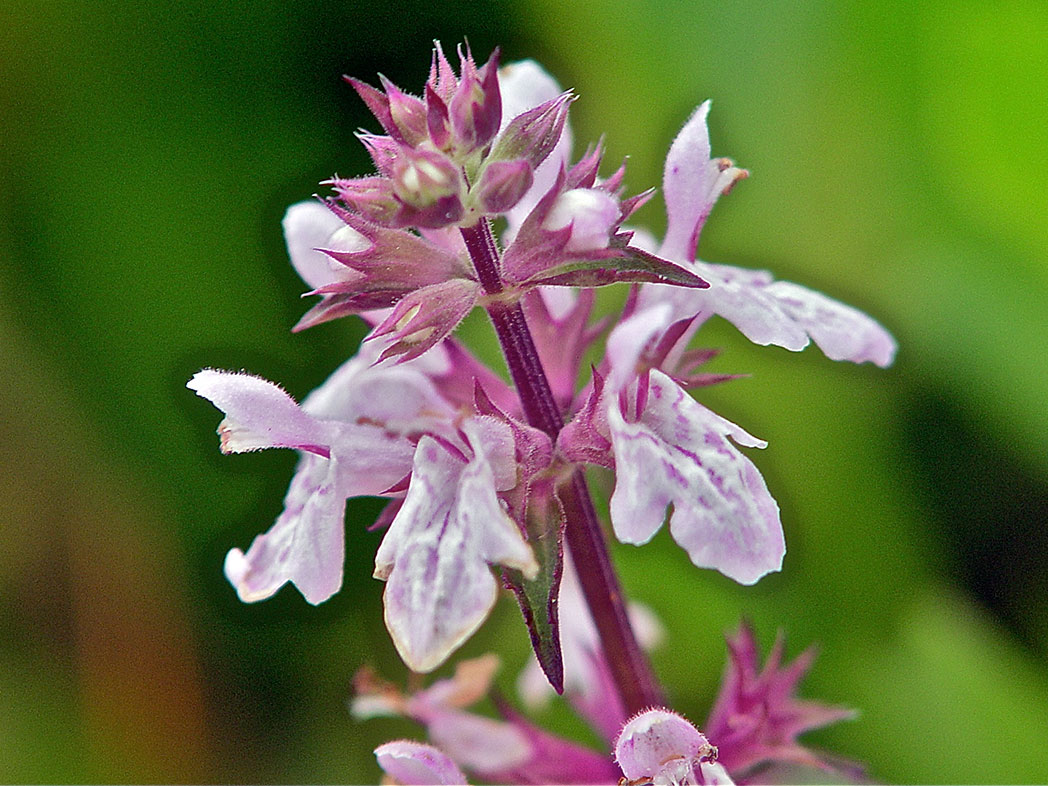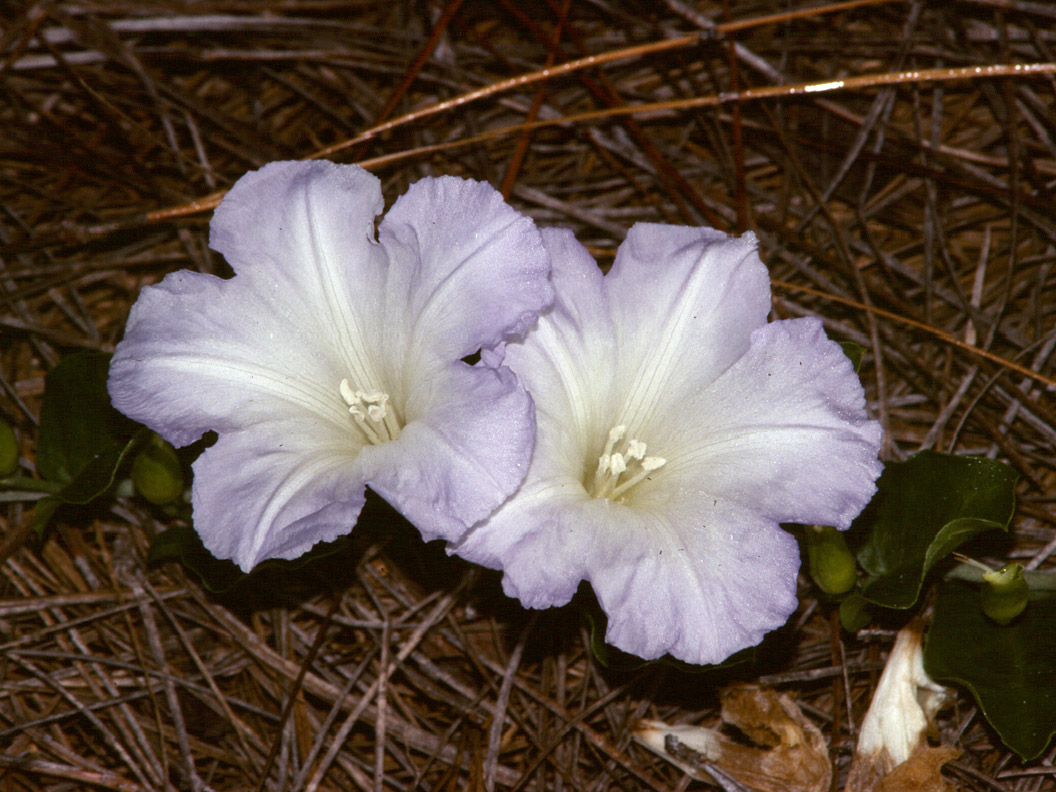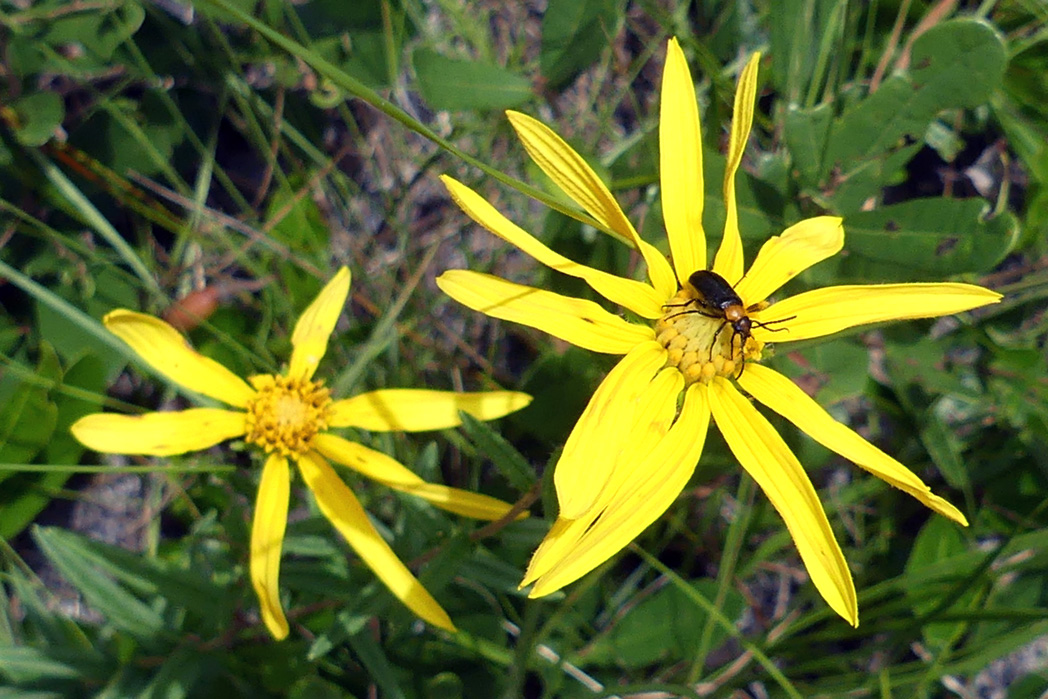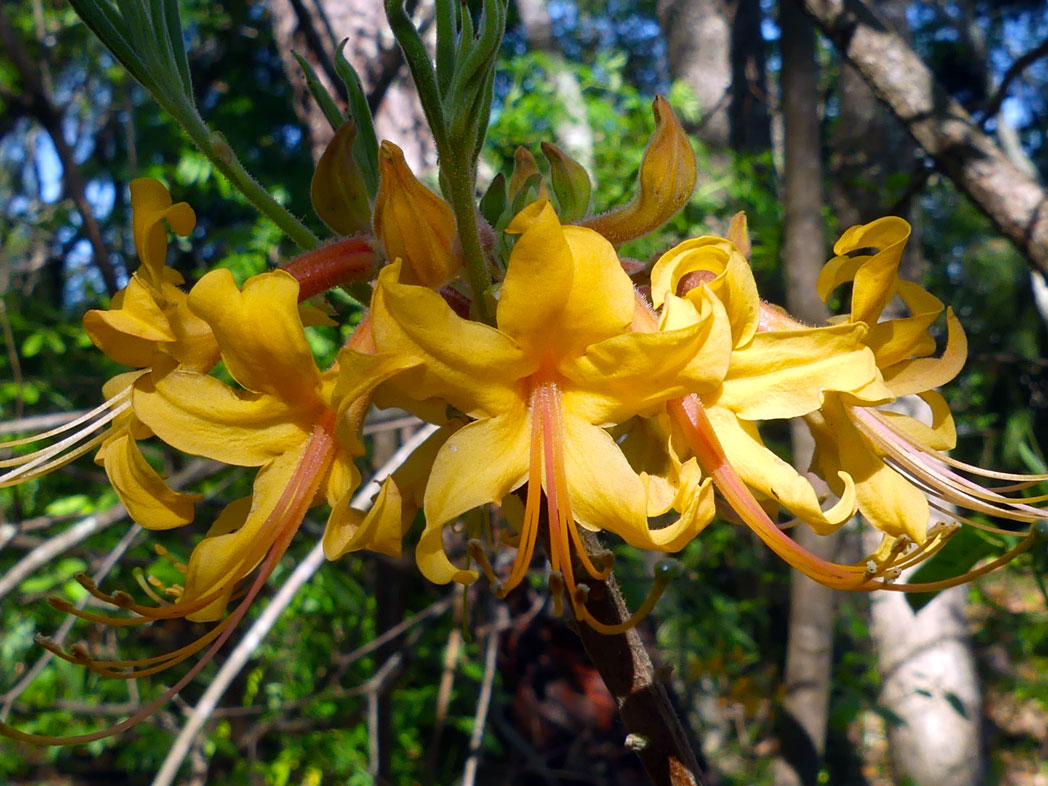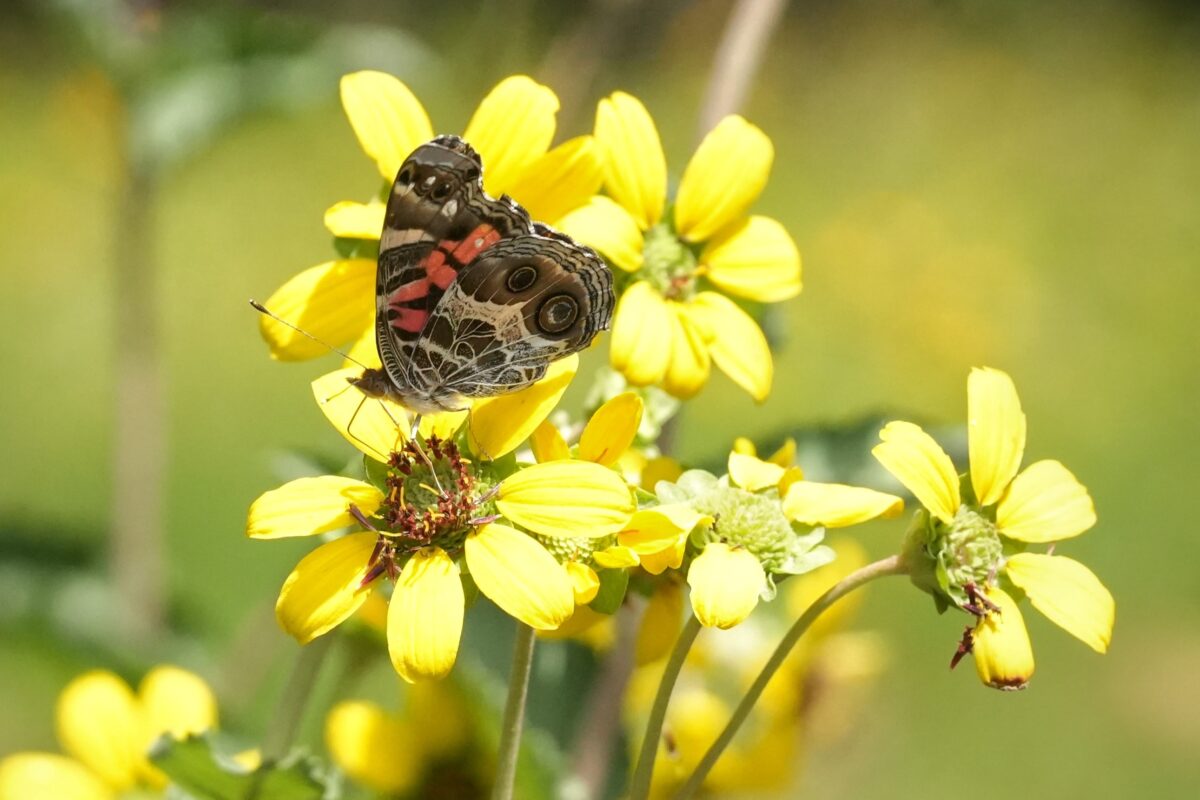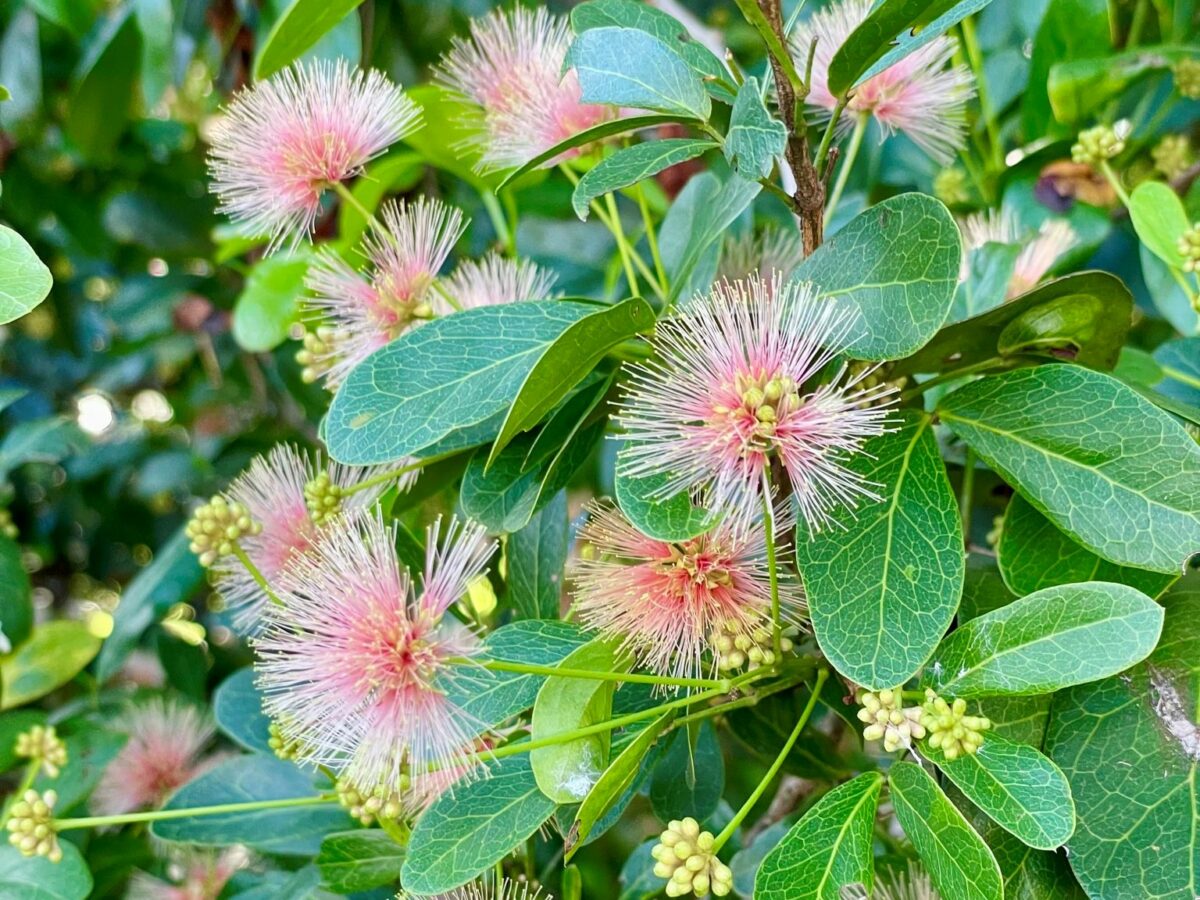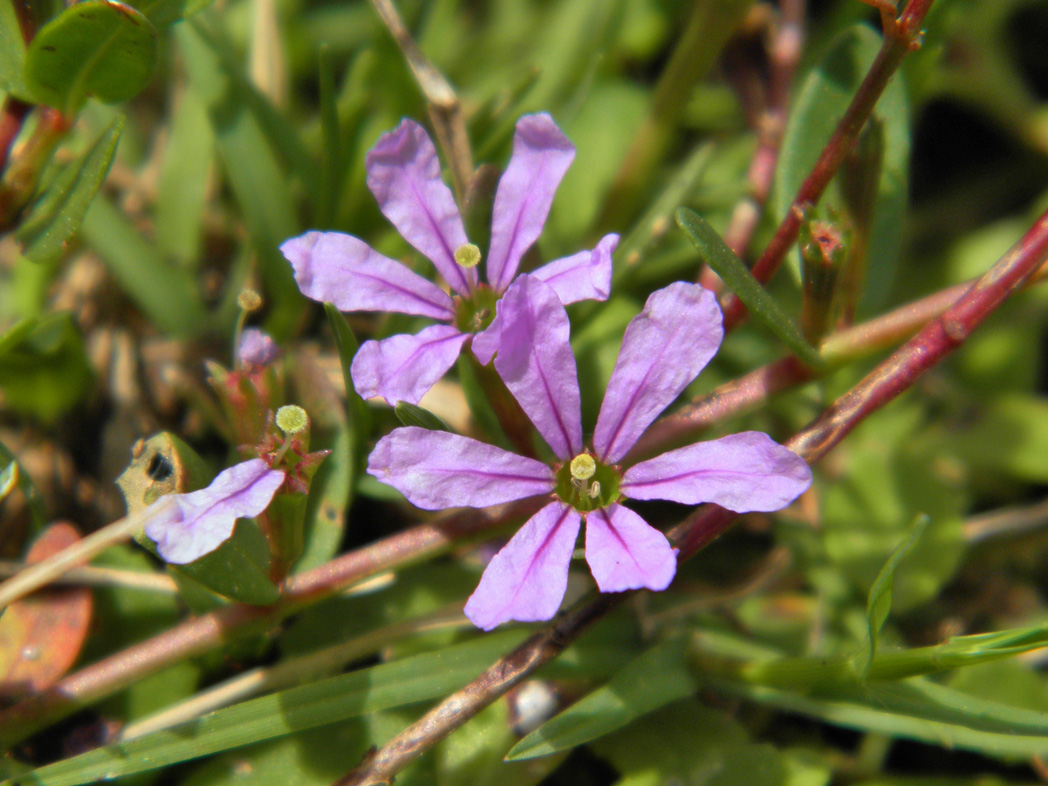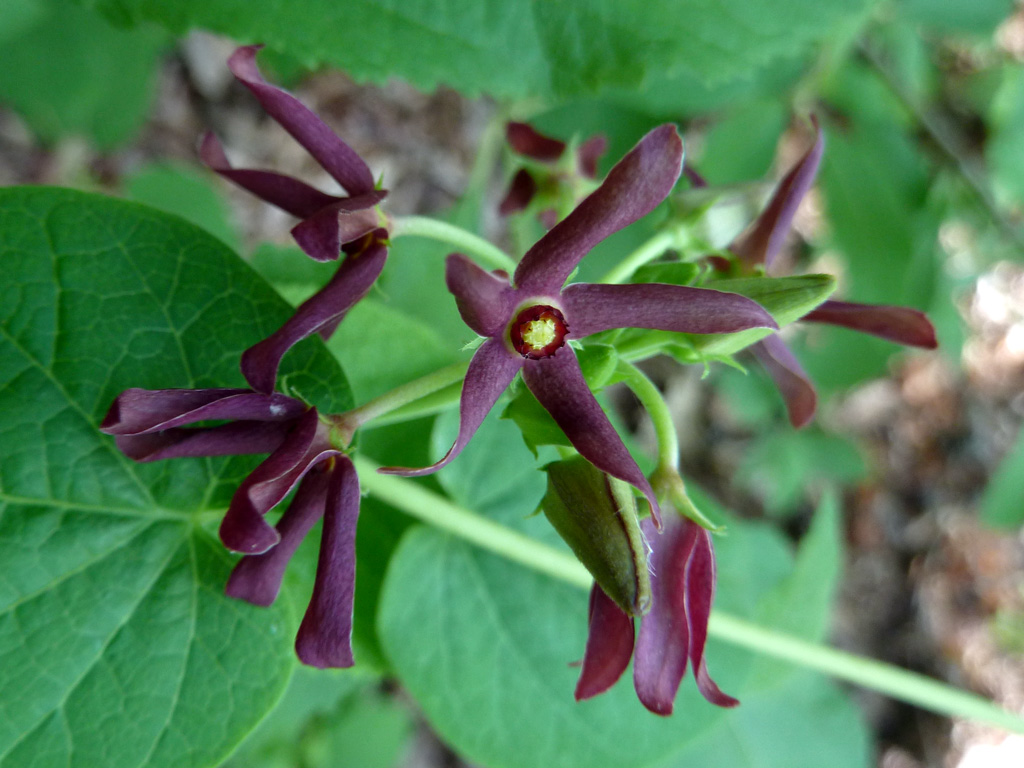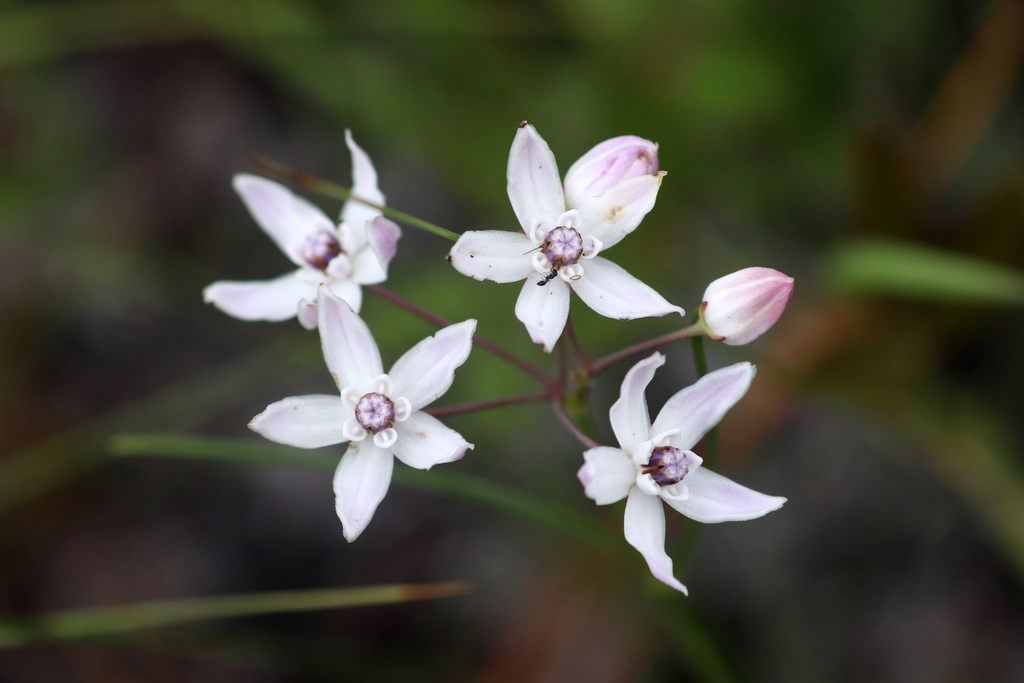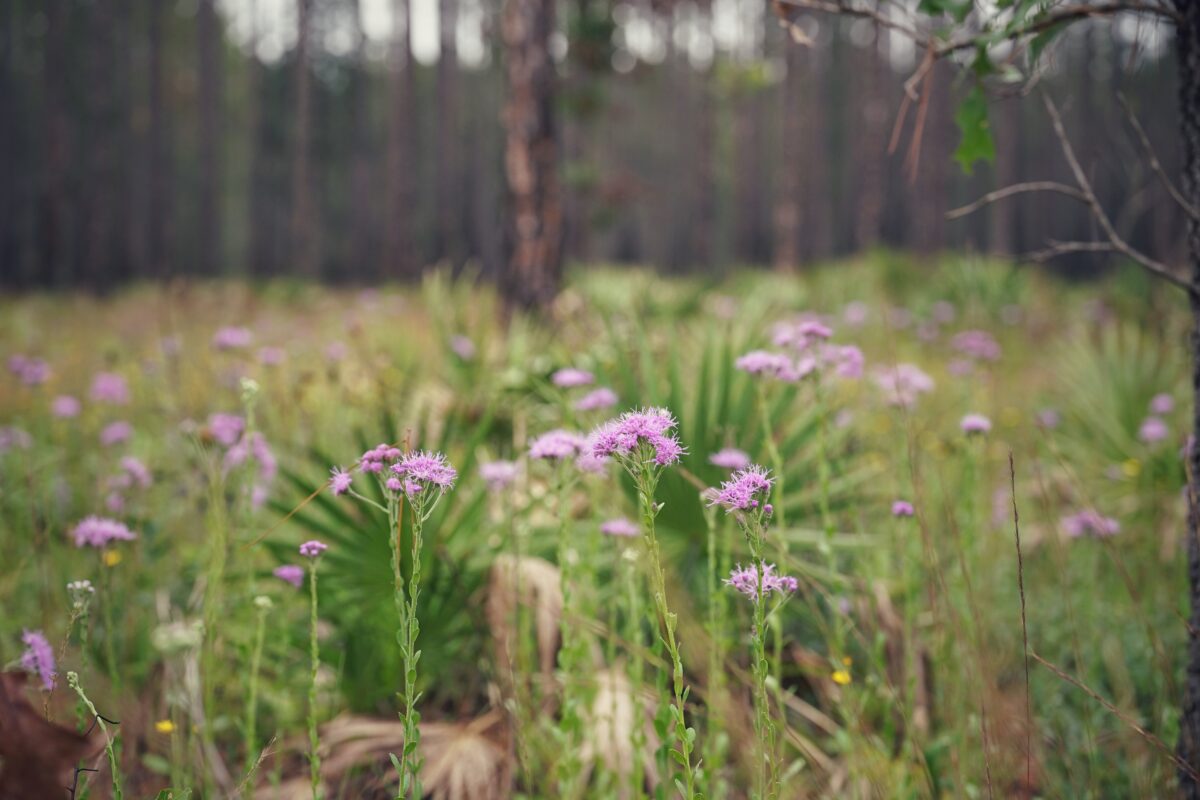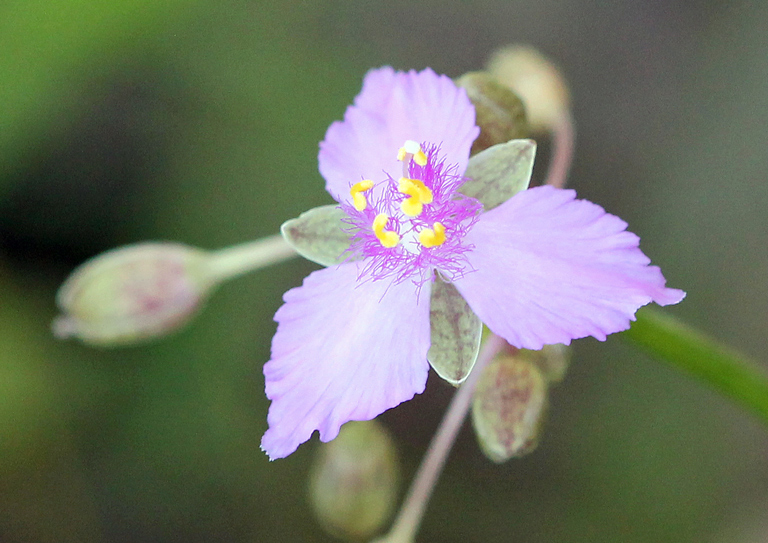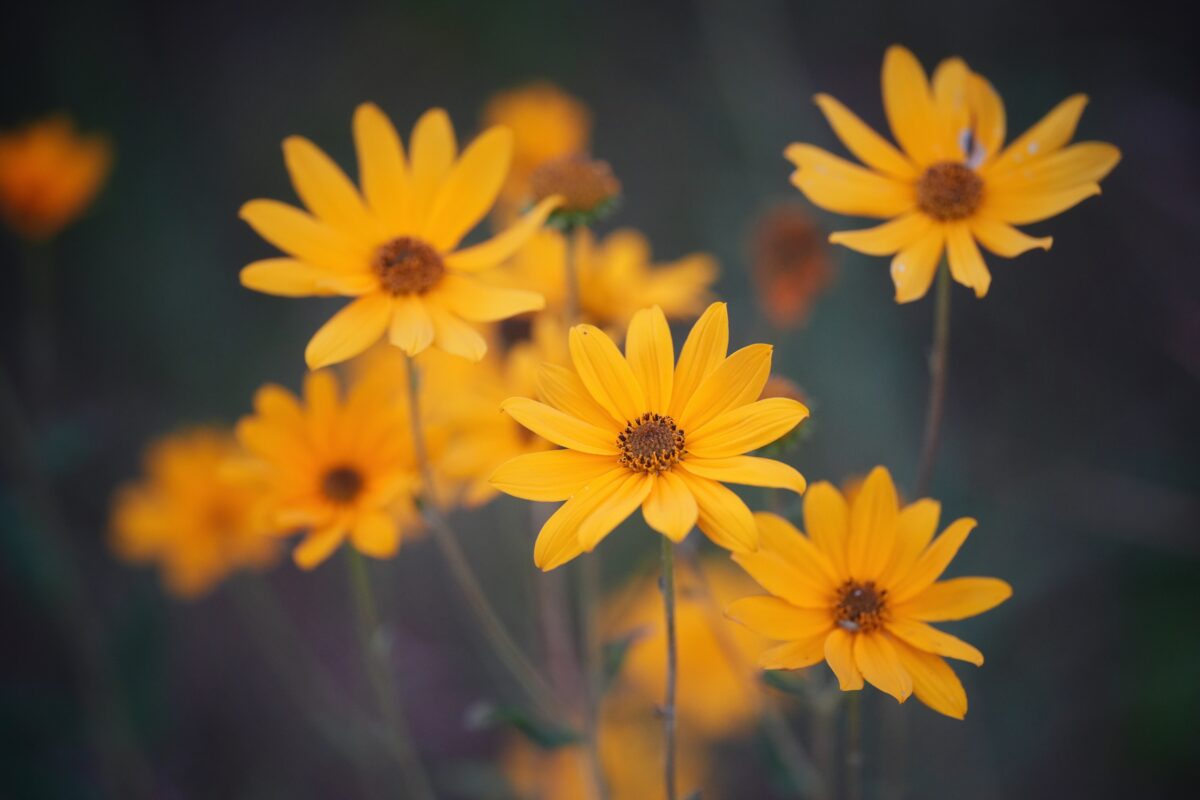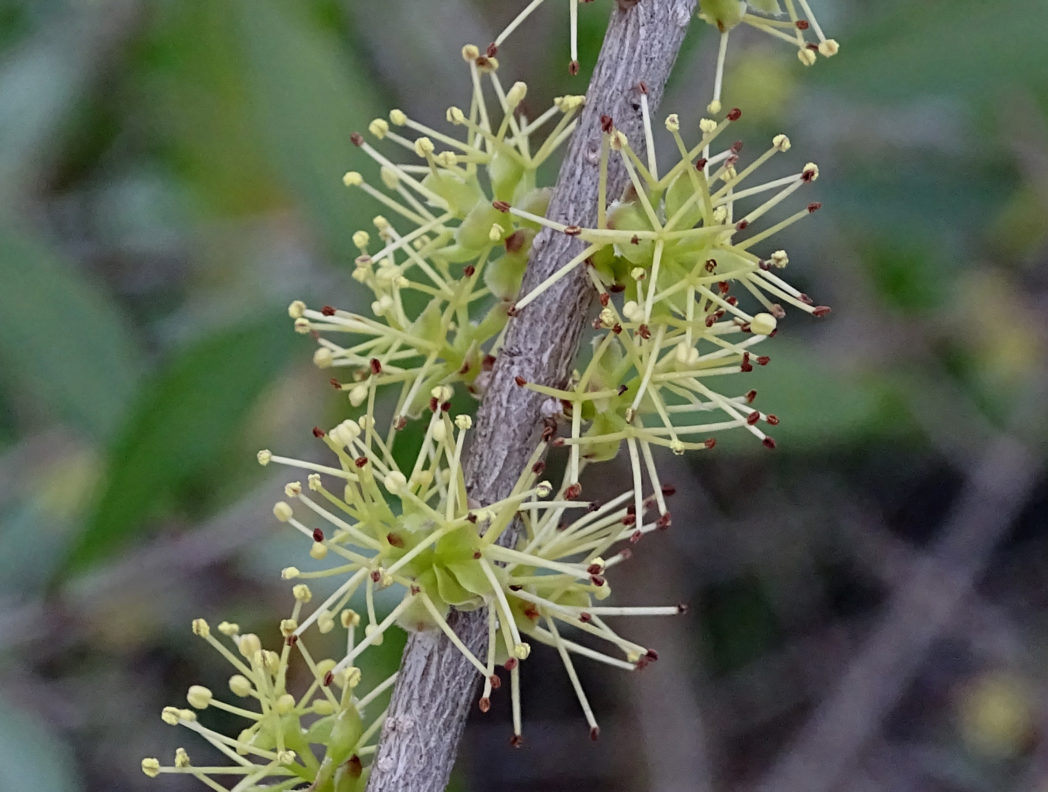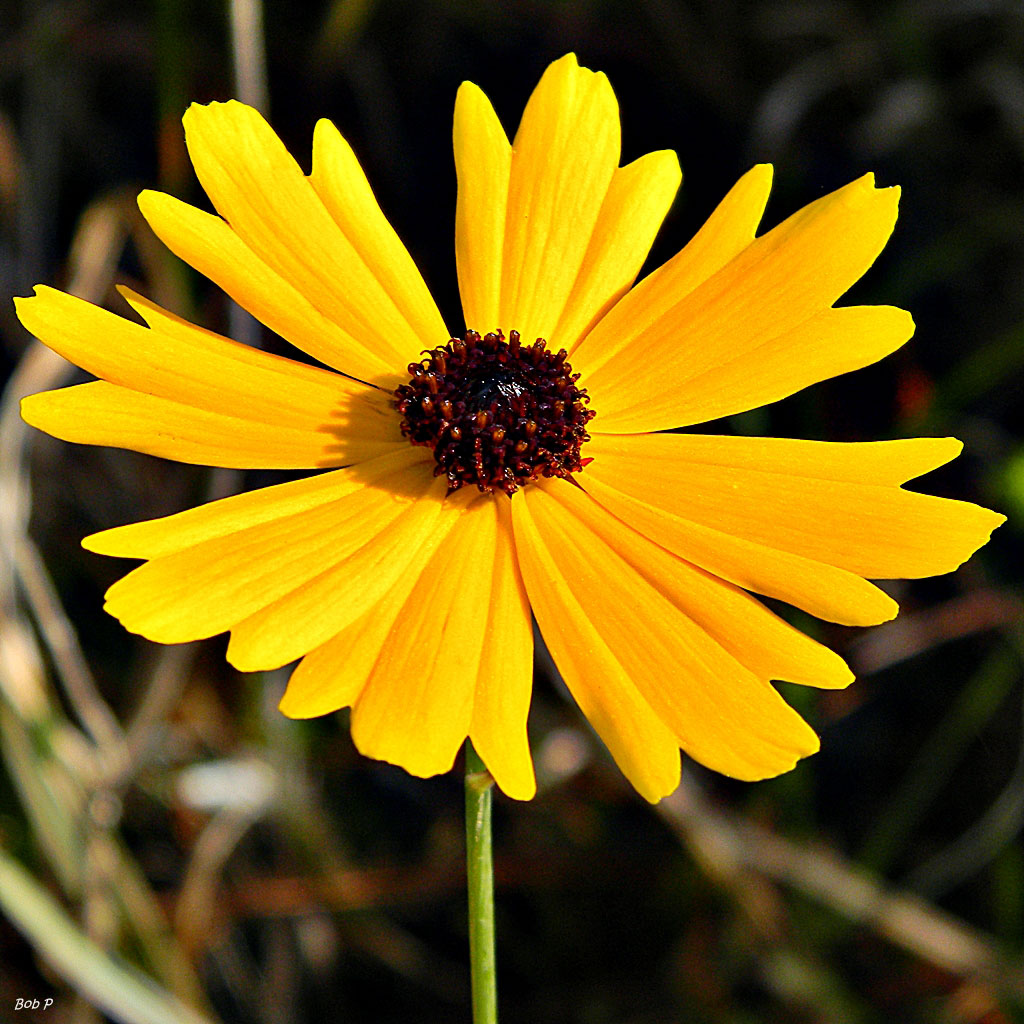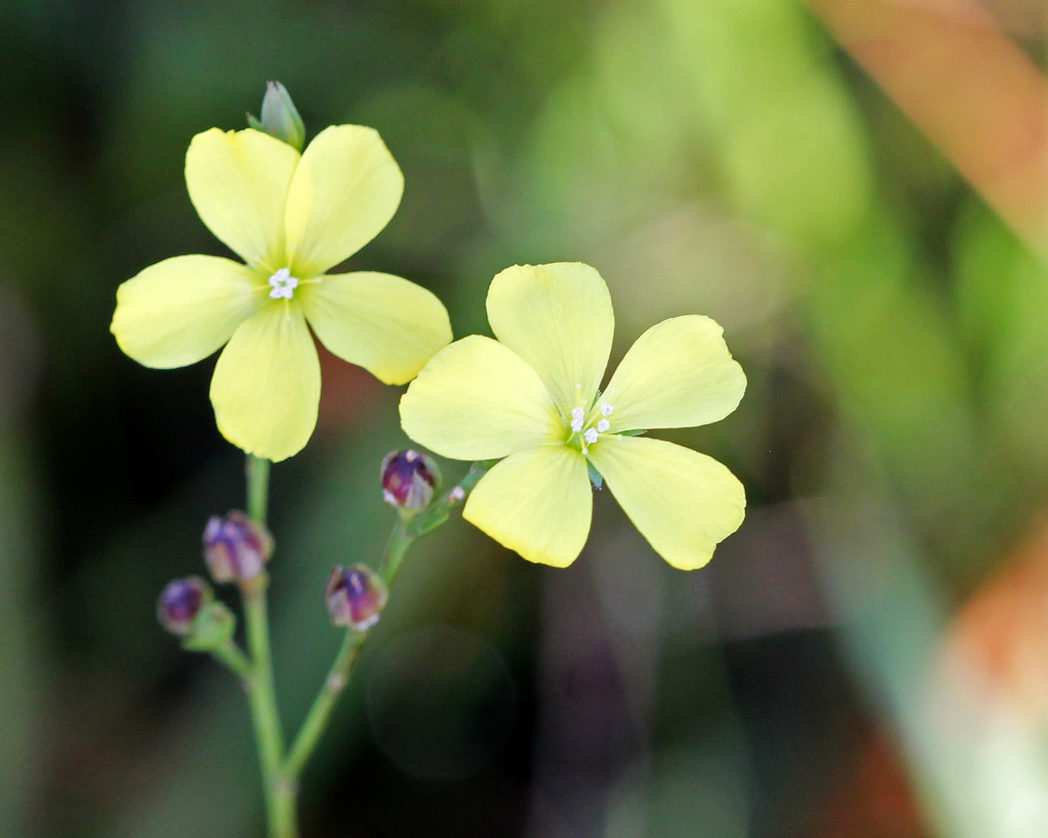False tamarind
The fragrant flowers of False tamarind (Lysiloma latisiliquum) are favored by South Florida butterflies and moths. The plant is a larval host, and provides food and cover for birds and other small wildlife, and habitat for a variety of snails.
Fanpetals
Fanpetals (Sida spp.) can bloom year-round and attract bees and butterfies, including the Tropical checkered skipper, for which they are a larval host.
Feay’s palafox
Feay’s palafox (Palafoxia feayi) is a very unique wildflower, endemic to Florida’s central and southern peninsula. It is a member of the Aster family, but bears few visual similarities.
Feay’s prairieclover
Feay’s prairieclover (Dalea feayi) is a low-growing shrub that occurs naturally in sandhills and scrubby habitats. It blooms in late spring through early fall attracting a variety of native bees.
Fewflower milkweed
Fewflower milkweed (Asclepias lanceolata) is a delicate wildflower found in swamps and moist to wet pinelands and prairies throughout Florida. Its stunning orange flowers typically bloom late spring through fall.
Firebush
Firebush (Hamelia patens var. patens) is a hardy shrub to small tree. It produces clusters of bright orange to red tubular flowers that are filled with nectar, attracting butterflies and hummingbirds.
Flatwoods plum
Flatwoods plum (Prunus umbellata) is a large shrub to small tree found in hammocks and woodlands throughout North and Central Florida. It flowers in spring, with profuse umbels of white blooms that attract a variety of pollinators.
Flaxleaf aster
Flaxleaf aster (Ionactis linariifolia) occurs in sandhill and pine flatwoods communities of Florida’s Panhandle. Its flowers attract a variety of pollinators, particularly bees and butterflies.
Florida bellflower
Florida bellflower (Campanula floridana) is an herbaceous perennial wildflower endemic to Florida. It is found in moist meadows and along pond, marsh and stream margins and moist roadsides. Its delightful violet flowers bloom in spring and mainly attract bees and butterflies, although hummingbirds also have been known to visit them.
Florida betony
Florida betony (Stachys floridana) often gets a bad rap because it spreads so prolifically, especially in moist turf lawns. But it is a wonderful native wildflower for attracting bees and butterflies, and is also almost entirely edible to humans.
Florida bonamia
Florida bonamia (Bonamia grandiflora) is a rare, flowering vine endemic to Central Florida. It is a federally threatened and state-listed endangered species. Its showy blooms appear spring through fall.
Florida false sunflower
Florida false sunflower (Phoebanthus grandiflorus) is a showy wildflower found in sandhills and pine and scrubby flatwoods. It is endemic to 26 counties in Florida. The plant blooms spring through fall, peaking in summer. Its vibrant flowers attract pollinators, especially bees and butterflies. Birds eat its seeds.
Florida flame azalea
Florida flame azalea (Rhododendron austrinum) is a deciduous shrub that puts on a stunning spring display of fragrant fiery flowers.
Florida greeneyes
Florida greeneyes (Berlandiera subacaulis) is an endemic wildflower found in Florida’s sandhills, pine flatwoods, mixed upland forests, and along dry roadsides. Their bright yellow flowers bloom in spring, attracting a variety of pollinators.
Florida Keys blackbead
Florida Keys blackbead is a lovely tropical shrub common to coastal hammocks in Southeast Florida. Its beautiful blooms and wildlife value make it a great addition to the home landscape.
Florida loosestrife
Florida loosestrife (Lythrum flagellare) is a state-listed endangered wildflower endemic to the west-central peninsula. This low-growing, creeping wildflower can be found along wet prairie edges, pond margins and moist roadsides. It typically blooms from February through June but is often overlooked because of its diminutive stature and tendency to blend in with the plants among which it grows.
Florida milkvine
Florida milkvine (Matelea floridana) is a deciduous twining vine that occurs naturally in sandhills, woodlands and other open habitats. Its small flowers bloom in late spring and summer.
Florida milkweed
Florida milkweed (Asclepias feayi) is a dainty endemic at home in the sandhills and scrubby flatwoods of Central and South Florida. It emerges from winter dormancy in spring and typically blooms mid-summer.
Florida paintbrush
Florida paintbrush (Carphephorus corymbosus) blooms from mid-summer into fall, attracting butterflies and other pollinators. It occurs naturally in sandhills, pine flatwoods, scrubby flatwoods, mesic flatwoods and ruderal areas.
Florida scrub roseling
Florida scrub roseling (Callisia ornata) is endemic to Florida and occurs naturally in scrub and sandhill habitats. It typically blooms spring through autumn.
Florida sunflower
The Florida sunflower (Helianthus floridanus ) occurs naturally in wet to moist habitats from pine savannas to roadsides. Its fall blooms are a delight to many pollinators and the seeds feed songbirds.
Florida swampprivet
Florida swampprivet (Forestiera segregata) typically blooms in early spring before leaves emerge, but the plant may bloom year-round. Bees and butterflies love the flowers.
Florida tickseed
Florida tickseed (Coreopsis floridana) is one of 12 Coreopsis species native to Florida. It is endemic to the state and occurs naturally in wet pinelands and prairies, cypress swamp edges and roadside ditches. It typically blooms from late summer into early winter, but may bloom year-round. Its bright sunny flowers attract a variety of pollinators, especially butterflies.
Florida yellow flax
Florida yellow flax (Linum floridanum) is a demure perennial wildflower found in sandhills and flatwoods throughout the state. It typically blooms summer through fall but may bloom year-round.
